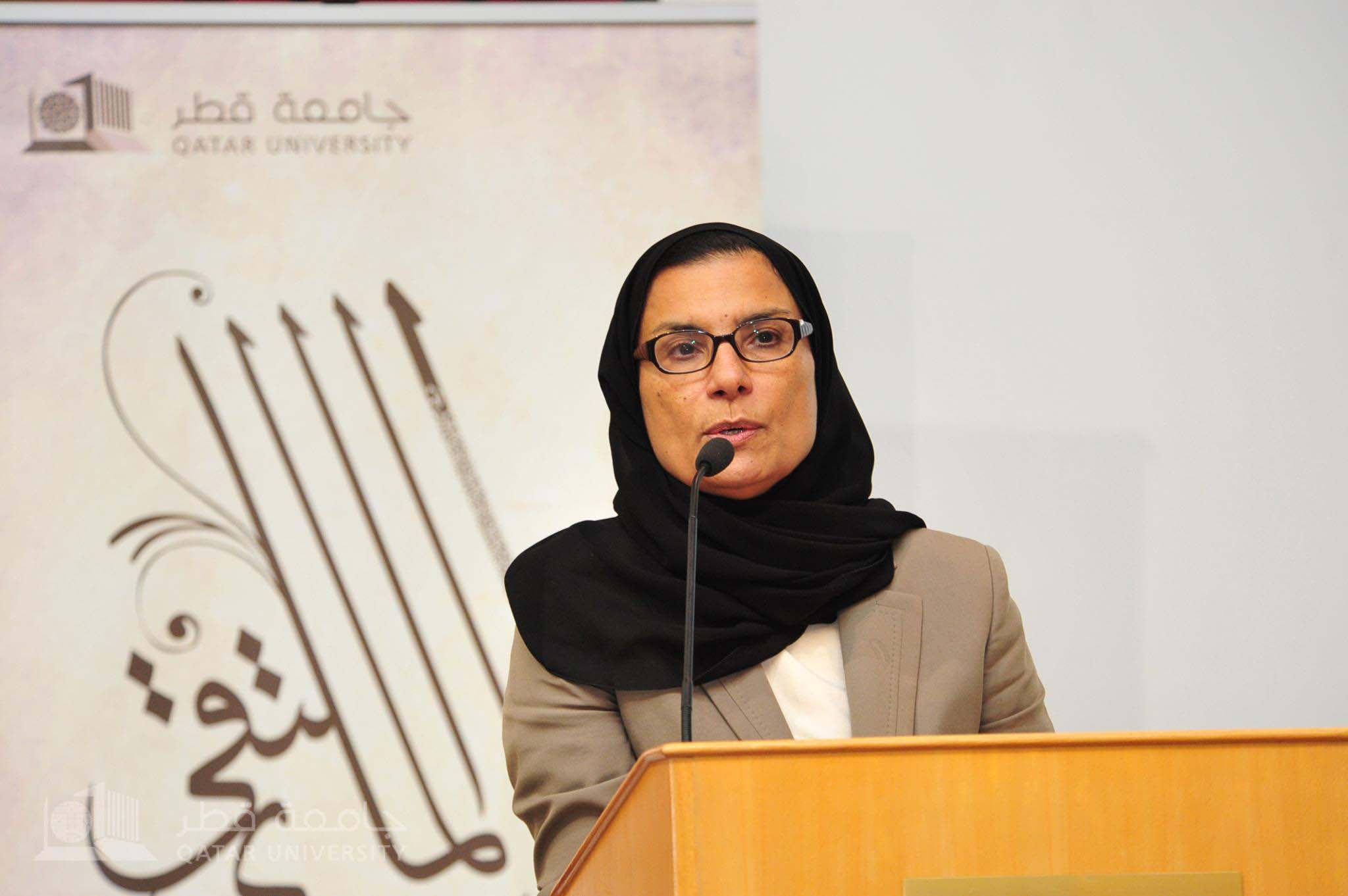
Following recent comments made by Qatar University (QU) President Dr. Sheikha Abdulla Al-Misnad about efforts to transform the country’s national university, some Qataris are saying they feel insulted by her views.
Last month, Al-Misnad spoke about the challenges of working to improve QU’s reputation since she took the helm in 2003. Al-Misnad spoke in English during a filmed panel discussion at Dalhousie University in Canada, saying:
“When I became president, the university was very traditional. It was treated as a government department. There were lots of issues with it. It would have been easier to build a new university, than work with the one that existed.”
Among the most controversial changes made a decade ago was the raising of the required gradepoint average for graduation, from 1.5 to 2.0 out of a 4.0 scale. That roughly translates into an increase in the minimum standard from a D+/C- average to a C.
At the time, many students failed to meet the new bar, Al-Misnad said:
“In the first year, we asked about 1,000 students to leave the University because of the academic standard. Basically, before, anyone who got in could get out.”
In a series of tweets, former Qatari diplomat Nasser Al-Khalifa said that the reforms did not have to happen overnight:
@thegulfblog @Aalbaker @quqatari She could have introduced her reform gradually without imposing it on already enrolled students
— Nasser H Al-Khalifa (@NasserIbnHamad) November 26, 2013
@thegulfblog @Aalbaker @quqatari Many families had to shoulder extra cost to send their kids to other countries to finish their studies
— Nasser H Al-Khalifa (@NasserIbnHamad) November 26, 2013
But in a statement to Doha News, QU said:
They were all given the 3 chances for improving their GPA per academic policies and those who were unable to reach a GPA of 2.0 were compelled to discontinue as is the standard in most universities around the world. “
Motivation
Many have also taken issue with Al-Misnad’s remarks about a lack of motivation among Qatari youth:
“I’m always concerned that we live in a blessed society with economic resources and a small population. I’m always thinking how we can motivate our youth. In my country, the national population looks at things as entitlement, not like an opportunity where you need to work hard on it.”
In a recent interview with University World News, Al-Misnad expands on this point:
“Asking students to follow certain standards whereby they could not graduate until they reached a certain level, that created a lot of problems because people were not used to it.
When you tell people that in order to achieve they have to follow certain rules, that is not accepted.”
Both Al-Misnad’s speech and the subsequent article have been shared widely on Twitter, and reaction to them has been swift, with many Qatari students voicing their displeasure at what they see as a slight of both their motivation and their abilities.
Much of the conversation has taken place on Twitter, under the hashtag #اعتذار_واستقالة_المسند_حق_للقطريين, which calls for both an apology from Al-Misnad and her resignation.
Speaking to Doha News, 19-year-old Hayawi, a young Qatari woman who says her application to study Business at Qatar University was rejected, said:
“First of all her (Al- Misnad’s) facts are all wrong. We are a hard working nation. I have never heard that someone has stayed at home and benefited from our economic resources!
All men and women work as hard as any nation. She has wronged students by expelling them or by not accepting them and replacing them with non-Qatari students. If I were lazy I would have stayed at home but I have tried studying in so many colleges so I can somehow be accepted at QU.”
Response from Qatar University
Reacting to criticism of Al-Misnad’s views on the motivation of young Qataris, QU told Doha News:
“The President’s complete faith in the capabilities of the Qatari youth and their ability to carry forward Qatar’s vision and ambitions is beyond question. The whole vision of the university’s reform project was based on the belief that the Qatari youth are capable of rising to the challenge of our national aspirations and ambitions.
This does not change the fact that youth motivation is a concern, particularly in nations that have been blessed with economic resources and high standards of living. Our leadership has addressed this social concern in the past, emphasizing the importance of coupling rewards with hard work and responsibility. “
Furthermore, in her remarks on camera at Dalhousie University, Al-Misnad justifies the radical changes she introduced at the university, saying that it has served to improve the university’s reputation and raise academic standards.
“It has been a difficult last 10 years, but we managed. Now we have a university whose graduates are respected in the labor market. We offer MAs and PhDs. Our research portfolio now is really large.”
QU, which now has some 12,000 students, its largest ever student body since it opened 40 years ago, also pointed to statistics from its annual report, which show a marked improvement in standards over the past decade.
These include a 47 percent improvement in student average GPA from 2005 to 2011, from 1.9 to 2.8; an increase in the number of students with a GPA of 3.5 or more; and a decrease in the percentage of students taking more than 5 years to graduate, from 21 percent to 12 percent.
Meanwhile, QU this fall admitted a record 4,000 students, 2,400 of whom are Qatari. This was thought to be because entrance has gotten easier for students pursuing business, law, media and international affairs, who no longer have to take foundation courses in English and Math.
Here are edited highlights of the panel discussion:
Thoughts?
Note: The reference to “full remarks” in the YouTube video above has been changed to avoid confusion. The video shows edited highlights of the panel discussion.







